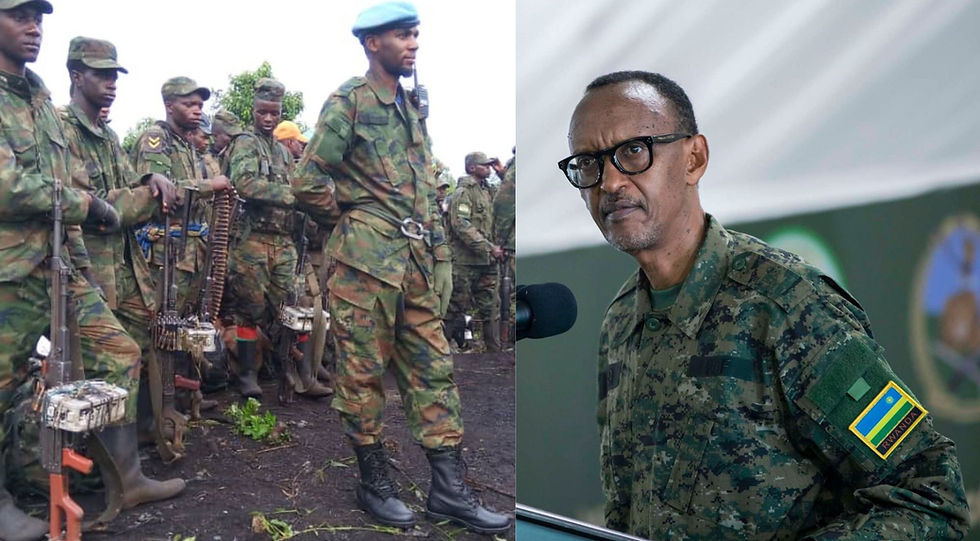Rwanda’s FDLR Rebels Ask for Talks Not Gun Violence
Magara Bosco
Apr 2, 2025
FDLR urges African leaders to support dialogue over military action
In a letter sent on March 22, 2025, the Democratic Forces for the Liberation of Rwanda (FDLR) asked leaders across Africa to support peaceful talks to solve the long-time refugee and security crisis in the Great Lakes region. This rebel group, mostly made up of Rwandan Hutu refugees, said that trying to “neutralize” them through military means would only cause more violence and suffering.
FDLR Opposes Military Solutions
The FDLR shared this message after a February summit by the East African Community (EAC) and the Southern African Development Community (SADC) called for the group to be neutralized. The FDLR fears this could be used by Rwanda and others as an excuse to attack them again, putting Hutu refugees in danger.
In their open letter, signed by Interim President Lt. Gen. Victor Byiringiro, the FDLR warned that past attempts to “neutralize” them led to mass killings and worsened the humanitarian crisis. They pointed to events like:
Refugee camps being destroyed during the AFDL war (1996–1997),
Operations Umoja Wetu and Kimia II (2009),
The M23 rebellion (2012–2013),
Ongoing fighting in North Kivu since 2021.
They say none of these actions helped the region, and instead, made things worse for civilians.
Who Are the FDLR?
The FDLR says it is not a terrorist group, nor does it deny the 1994 genocide. Instead, it describes itself as a political and military group that was formed in 2000 by Rwandan Hutus who ran away from revenge attacks after the genocide.
They say their goals are:
To protect Hutu refugees in Congo,
To push for open dialogue between Rwandans,
To make sure refugees can return home safely and freely,
To support political changes and justice in Rwanda.
They also said they do not support any violent solution and want peace talks led by African and international organizations.
Refugees Living in Fear and Without Help
The FDLR’s letter highlights the poor situation of Rwandan refugees in Congo. They say that more than 207,000 Rwandan refugees are stuck in limbo—many not counted because they are unregistered. These refugees do not have camps, don’t receive aid, and are often forced to go back to Rwanda.
Between 2019 and 2024, only 9,353 refugees went back to Rwanda, and many of those were forced to return. The FDLR believes that this refugee crisis started in 1990 when the Rwandan Patriotic Front (RPF) launched attacks. They also referenced the 2010 UN Mapping Report that documented serious crimes by Rwandan forces in Congo, saying these issues remain unsolved.
Past Efforts for Peace
The FDLR says it has tried several times to disarm and join peace efforts, but was let down each time. Some examples include:
Giving up weapons in Kamina in 2001–2002,
Signing the 2005 Sant’Egidio peace deal,
Joining the 2008 Goma peace conference,
Taking part in voluntary disarmament in 2014.
They say their fighters were betrayed, some were sent back by force, and many were treated badly upon return. They feel ignored by international groups and say their peaceful proposals were not taken seriously.
A Message to African Leaders
The FDLR ended their letter by asking African leaders from the AU, SADC, EAC, ECCAS, and ICGLR to support honest and inclusive political talks. They believe peace in the region is only possible if the root causes are addressed.
They proposed four main topics for talks with Rwanda:
Freedom of expression and political rights,
A clear understanding of what caused the conflict,
Fair justice and reforms to share power,
Safe and voluntary return of refugees with help from international groups.
They said the time has come for brave leadership and warned that more military action will only increase the suffering of people in the region.








